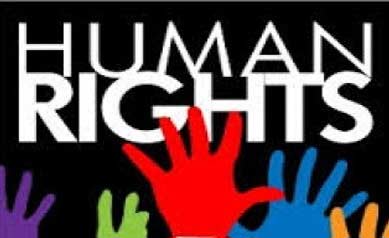Did Gov of Eritrea Really Dodge UN Accountability?

Since June 8, when the Commission of Inquiry (CoI) on Human Rights in Eritrea filed a report concluding that “there are reasonable grounds to believe that crimes against humanity” have been committed and are still being committed in Eritrea, there have been questions on how the UN’s Human Rights Council (HRC) would deal with the report. Now that the HRC has issued its resolution, the new controversy is on whether HRC supports or rejects the conclusions and recommendations of the CoI. Some, like a criminal who celebrates when his case is referred to a lenient court, are considering the alleged absence (based on draft copies they reviewed) of five words from the resolution–Security Council International Criminal Court– “as victory for Eritrea.” They may want to hold off the celebrations: the version that is posted in HRC’s website and available in six languages, specifically requests of “the General Assembly to submit the report and oral updates of the commission of inquiry to the Security Council for its consideration and appropriate action.” But I am getting ahead of myself. My purpose today is to provide a spin-free report on what each party–the Commission of Inquiry and the Government of Eritrea–got from the resolution.
One way to do that is by listing what each side wanted and comparing it to the language of the HRC. We can do that by reviewing the documents listed in the footnotes. Because there are three versions of HRC draft floating (the Djibouti/Somalia original draft, the one with the redlines, and the one that is now posted as a draft resolution in 6 languages) I am going to focus ONLY on what all three versions of the resolutions agree on. If you want to know my biases, you can listen to my June 12 interview with medrek: translated to Tigrinya here, or in the original English here. (If you hate my image superimposed over HRC session, please send your hate mail to Tes @ asmarino.) In this particular column, I will try to be as objective as I can, given the general confusion that surrounds the issue.
UN Phrases and Verbs
To help us all get familiarized with the language of diplomacy, let’s begin with a glossary of UN English using the American Model United Nations (AMUN.) A resolution has a preamble, with perambulatory clauses: these are the rationale for the action being taken. This is the part with phrases like “affirming”, “emphasizing”, “fully aware”, “warmly welcoming”, etc. Then there is the action taken (decision or resolution) with operative phrases such as “accepts”, “calls”, “notes”, “welcomes”, “condemns.” There is a decorum for precise use of the pre-ambulatory and operative phrases used in UN resolutions because, as the editorial guidelines of the UN explain:
“Once adopted, these important international instruments belong to the world. Many of them will be cited for years, even decades, to come. For this reason, it is imperative that they be grammatically and factually correct, consistent and equivalent in all six official languages.”
The guideline also has this to say about a phrase that originated with Henry Kissinger, i.e.: constructive ambiguity.
“The editors recognize that “constructive ambiguity” is sometimes intentionally used to facilitate agreement on a sensitive text. In consultation with the facilitator/sponsor, editors can help to ensure that the message is identical in all the languages while preserving the desired level of vagueness. “
In addition to the need to get buy-in from everyone, the phrases used are carefully selected to (a) ensure consistency/continuity with prior resolutions; (b) to convey the precise emotional/intellectual state of the body issuing the resolution. The AMUN Rules & Procedures has this to say about the importance of selecting the right phrase and verb:
Diplomatic communication relies heavily on connotation and nuance, and UN resolutions and decisions are no exception to this rule. When resolutions are constructed, they often contain language which, although apparently innocuous, conveys the precise attitudes and intentions of their authors…The introductory phrases…also carry significant emotional and diplomatic meaning. Accurate use of these introductory terms is of paramount importance at the UN…
The AMUN Rules & Procedures gives further help with what the phrases means, which I will quote at length:
| PHRASES | TYPICAL USAGE |
|---|---|
| Noted | a neutral word. But there are times when a neutral word is insulting: for example, a resolution ‘noting’ the report of the Secretary-General actually insults the Secretary-General’s work by not being more approving. |
| Noting with appreciation | this is a the typical way to recognize a report or other document. |
| Recommends | suggests that other organs take action |
| Requests | suggests that Secretary-General take an action |
| Appeals | suggests that Member States take an action, more emotional |
| Calls upon | suggests that Member States take an action, very emotional |
| Urges | strongest suggestion by the General Assembly |
| Demands | rarely used outside the Security Council |
| Condemns | rarely used outside the Security Council |
With the above as our roadmap, let’s tally the phrases and whom the HRC directed them to. Here’s a helpful table where:
CoI = Commission of Inquiry on Human Rights in Eritrea
GoE = Government of Eritrea
MS = Member States
OHCHR = Office of High Commission on Human Rights
SR = Special Rapporteur on Human Rights in Eritrea
SG = Secretary General
Biz = Business Enterprises
GA = United Nations General Assembly
AU = African Union
| COI | GoE | MS | OHCHR | SR | SG | Biz | GA | AU | |
|---|---|---|---|---|---|---|---|---|---|
| PREAMBULATORY PHRASES | |||||||||
| Taking Note | 1 | ||||||||
| Noting | 1 | 1 | |||||||
| Welcoming | 1 | 2 | |||||||
| Welcoming also | 1 | ||||||||
| Welcoming further | 1 | ||||||||
| Commending | 1 | ||||||||
| Expressing deep concern | 1 | ||||||||
| Also expressing deep concern | 1 | ||||||||
| Noting with deep concern | 2 | ||||||||
| Noting with grave concern | 1 | ||||||||
| Noting with regret | 1 | ||||||||
| Expressing grave concern | 1 | ||||||||
| Deeply concerned | 1 | ||||||||
| OPERATIVE PHRASES | |||||||||
| Welcomes with appreciation | 1 | ||||||||
| Welcomes | 1 | ||||||||
| Condemns in the strongest terms | 1 | ||||||||
| Condemns in particular | 1 | ||||||||
| Expresses its deep concern | 1 | ||||||||
| Reiterates its numerous calls | 18 | ||||||||
| Encourages | 2 | 2 | |||||||
| Takes note | 1 | ||||||||
| Urges | 1 | 1 | |||||||
| Decides | 1 | ||||||||
| Calls upon | 1 | ||||||||
| Requests | 1 | 1 | 1 | ||||||
| Strongly encourages | 1 |
Take-Aways
1. The Human Rights Council agreed with the Commission of Inquiry that it performed its work in transparent, impartial and consultative manner; that Eritreans are denied freedom of expression; that National Service is indefinite and that the abysmal state of human rights in Eritrea is the primary driver of migration. It accepted the CoI’s report as it relates to torture, rape, killings, arbitrary arrests, enforced disappearance and condemned “in the strongest terms the reported systematic, widespread and gross human rights violations that have been and are being committed by the Government of Eritrea in a climate of generalized impunity.” It also condemned “in particular the arbitrary detention, enforced disappearances, enslavement, torture, killing, sexual violence, discrimination on the basis of religion and ethnicity and reprisals for the alleged conduct of family members, as well as the human rights violations in the context of indefinite national service, including those involving forced labour, the forced military conscription of children and sexual violence.”
2. The Human Rights Council considered the GoE’s commitment to the Universal Periodic Review (UPR) worth “noting” and its commitment “to protect and promote the economic and social rights of its people, including through the early achievement of the Millennium Development Goals and its commitment to the Sustainable Development Goals” as welcome. HRC was silent on what the GoE calls “fundamental realities”–the so-called “no peace, no war” situation–probably because the GoE has not formally notified the Secretary General, in writing, that it is suspending civil liberties due to state of war.
3. While the HRC “welcomes with appreciation” the report of the CoI, it only “welcomes” the report of the Special Rapporteur. Given that “welcomes with appreciation” is, according to UN protocol, “the typical way to recognize a report or other document”, it’s hard to escape the conclusion that the HRC was not overly impressed with the SR report. But then the SR mandate was renewed, and the language of the resolution is gender specific: it appears that they want Sheila Keetharuth to continue in the same role.
4. While the highest honor the HRC could pay the CoI was to compliment its work and direct the concerned party to implement all its recommendations (and it did; and the CoI expressed its gratitude in a press release), there are parts of the CoI report that the HRC did not accept. One of these deals with the “accountability” side, which I will analyze below. But the other has to do with areas where the CoI was not just criticizing the GoE but, indirectly, the UN itself, as well as key actors within the HRC (the US and Europe).
(a) Given that, between the period of 1991-1997 the United States and Europe were highly complimentary of the Eritrean government; given that the US and Europe worked hard to stop the Eritrea-Ethiopia war of 1998-2000 (it’s hard to find any two African countries that the US and Europe would spend comparable effort for), the HRC’s conclusions that crimes against humanity have been committed in Eritrea since 1991 was an insult to the UN, US and Europe. The CoI was telling them: all of that happened under your nose while you were busy praising the regime.
(b) Given that the Government of Eritrea’s achievements in meeting the Millenium Development Goals (MDGs) are widely celebrated within all UN organs, the CoI’s decision that this claim is virtually meaningless because “Eritrea does not have the type of independent institutions that would permit verification of data provided by the Government” was a slap on the UN itself. The CoI even questioned the inflated population of Eritrea, which every UN agency is happy to inflate for whatever reason, despite Yemane Gebrab’s assertion that it is under 4 million.
I believe this is why a member of the US delegation to HRC, Eric Richardson (who should know better), was quoted by Reuters as saying that the CoI Eritrea report, in comparison to CoI North Korea report, did not have “the same level of sophistication and precision.” I mean insult the GoE and damn it all you want and we will sign off, but don’t insult the UN, US, and Europe and make us look bad! It’s hard not to be sympathetic to the GoE when it explains to the US, EU and UN with exacerbation: we are the same people we were in 1997, you were fans then: why did you change your opinion of us? CoI Chairman Mike Smith is saying, for different reasons: exactly my point!
5. On accountability, the CoI had said, without giving its reasons, that neither a hybrid tribunal nor a truth commission would be a viable option in Eritrea. The Commission “took note” of that. The CoI had also said that it had created a case against a number of un-named Eritrean officials. The HRC “took note” of that as well. I think it is fair to say that “took note” in this context means “duly noted.” It could also mean, “you make such a claim but you don’t explain why that’s not possible.” On the other hand, the HRC did not comment on the CoI’s conclusion that the human rights situation in Eritrea poses a threat to the peace and security of the world.
6. So, does this mean the GoE or its supporters should celebrate this the way an escape artist would? Did it get away with it? Did the Government of Eritrea dodge a bullet? Consider this:
(a) Even in the most “watered-down” version of the draft (the one with the red lines), there is a referral to all UN organs. Yes, that could mean the General Assembly will “submit the report and oral updates” to the UN’s Economic and Social Council (ECOSOC) and all its departments including FAO, WHO, UNESCO, UNDP, UNICEF and UNHCR. Or to the Secretariat whose UNMEE was sent packing by Eritrea. But it could also mean the UNSC. In fact some of us maintain it could only mean UNSC and the reference to UN organs is good old “constructive ambiguity.”
(b) The mandate of the Special Rapporteur has been extended for another year;
(c) The role of the High Commissioner on Human Rights has been expanded to include, just like the SR, giving reports to the HRC and the General Assembly of Eritrea’s level of co-operation including “information on the identity, safety, well-being and whereabouts of all detained persons and persons missing in action”
(d) Eritrea is due for Universal Periodic Review and it will be asked to give an update on all the open items (“reiterates its numerous calls”) including the mysterious constitution which is being drafted by the equally mysterious panel of experts.
(f) Not only did the HRC, unlike the CoI, not rule out a hybrid court, it said in all the versions of the resolutions the following:
Strongly encourages the African Union to follow up on the report and recommendations of the commission of inquiry on human rights in Eritrea by establishing an investigation, supported by the international community, with a view to examining and bringing to justice those responsible for violations and abuses of human rights identified by the commission of inquiry, including any that may amount to a crime against humanity;
If the United States gauged that the CoIE report, headed to the Security Council, will find the Wall of China and Moscow, just like the Commission of Inquiry on Human Rights in North Korea’s did for the last two and half years, wouldn’t an AU, or a hybrid court “supported by the international community” be an end-run?
While His Excellency Girma Asmerom missed this and is celebrating how Eritrea dodged the Security Council, I think His Smartypantsness Yemane Geberab saw the danger in this and that is why his rebuttal to the HRC following the resolution was particularly enraged, in stark contrast to his initial confident claim that the report belonged to a “three-person panel.” Now it belongs to the UN (HRC.) He sees parallels with the 2009 sanctions that will never be lifted without US’s will: It originated in IGAD, it headed to AU, and then to the UN. China and Russia can say no to Djibouti and Somalia all day, every day, twice on Sunday, but they can’t say “no” to an entire continent. Same thing that happened with the sanctions in 2007-2009 can happen with the Accountability & General Impunity now.
We will know if the Gov of Eritrea has wised up since 2008 and will actually now try a charm offensive in Africa or if it will have Eritrea’s head of state on an insult-a-thon. We will know because it has a card to play: Anglophone and Francophone Africa are at war as to who will be the the next chairman of the AU. Of course, the Government of Eritrea can spend a fraction of that energy and speak with its own people–Eritreans–and draw a credible blueprint for constitutionalism and rule of law, that will render all UN resolutions moot. But I am not holding my breath on that. It only appears to listen to Europe, the US and the UN.
References:
Detailed findings of the commission of inquiry on Human Rights in Eritrea
Preliminary Response of the Government of Eritrea to the Report of the Commission of Enquiry
State of Eritrea Draft Resolution on Human Rights in Eritrea
UN HRC Resolution A/HRC/32/L.5/Rev.1 on Eritrea
Statement of Eritrea’s Delegation at UNHRC – 32nd Session
UN’s Editorial Guidelines




Awate Forum